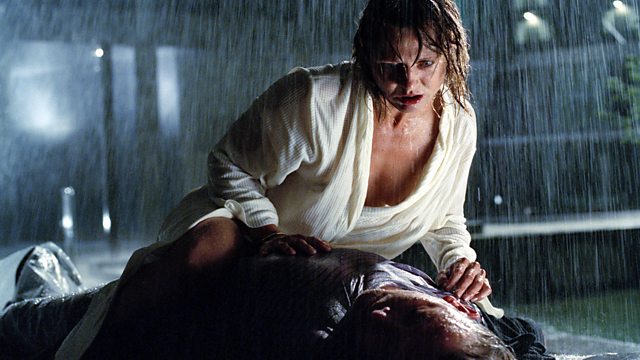Anne Tyler's Noah’s Compass, and Ole Bornedal's Just Another Love Story
Tom Sutcliffe is joined by historian Dominic Sandbrook and the writers Kathryn Hughes and Philip Hoare to discuss cultural highlights including Anne Tyler's novel Noah's Compass.
Tom Sutcliffe is joined by historian Dominic Sandbrook and the writers Kathryn Hughes and Philip Hoare to discuss the cultural highlights of the week, featuring memory loss in Baltimore and Denmark, 80s radicalism, and some old telescopes.
Noah's Compass is a novel by Anne Tyler which has little to do with either Noah or a compass. It has more to do with Liam Pennywell, a recently retired teacher in Baltimore who gets an unpleasant surprise when he moves into a new apartment. The book is an elegant exploration of age and memory.
Danish director Ole Bornedal's latest film, Just Another Love Story, is a knowing homage to the film noir genre. Anders W Berthelsen plays Jonas, a photographer employed by the police to record corpses in situ. A car crash, from which he and his family appear to emerge unscathed, ends up shaking the foundations of Jonas's life into a tangle of lust, deception and mistaken identity.
The Black Album, Hanif Kureishi's 1995 novel about the competing attractions of religious fundamentalism and hedonistic liberalism to an impressionable British Asian youth in 1989, has been adapted for the stage by Kureishi himself. In the Tara Arts production at the National Theatre, Jonathan Bonnicci is Shahid, recently arrived in London from Sevenoaks and unsure as to where his loyalties truly lie as the debate over The Satanic Verses rages.
Alexander Fleming is rightly remembered as the scientist who first identified the antibacterial properties of penicillin. However, the hard slog of producing it in sufficient quantities to test its practical effectiveness was carried out by Howard Florey and his team in the early years of the Second World War. Dominic West plays Florey in Βι¶ΉΤΌΕΔ Four's Breaking the Mould, which follows the human story behind the medical breakthrough.
Four hundred years ago, Thomas Harriot made the first astronomical drawings based on his observations through a telescope. The Science Museum in London celebrates this anniversary with an exhibition, Cosmos and Culture, which traces the evolution of the rudimentary telescope into the powerful and highly sensitive apparatus available to astronomers today. It also shows how astronomical discoveries have been absorbed by popular culture, from early science fiction to special Monopoly sets.
Last on
Broadcast
- Sat 25 Jul 2009 19:15Βι¶ΉΤΌΕΔ Radio 4
Subscribe to the Saturday Review podcast
Sign up to the Saturday Review podcast for the latest and past episodes to download.
Podcast
-
![]()
Saturday Review
Sharp, critical discussion of the week's cultural events, with Tom Sutcliffe and guests


